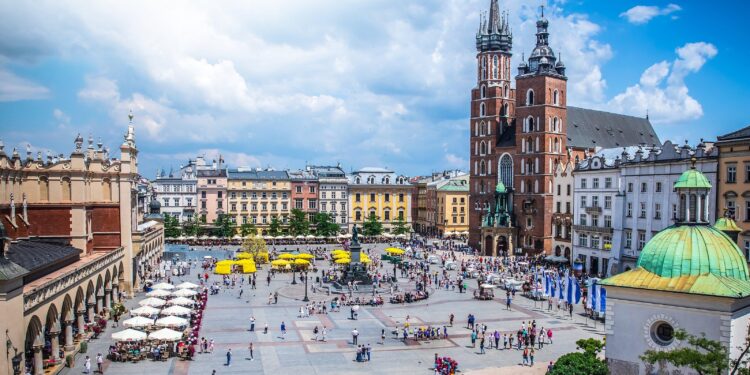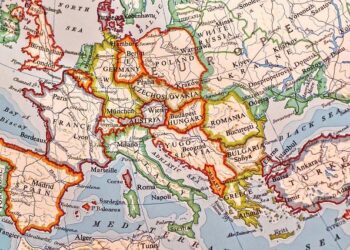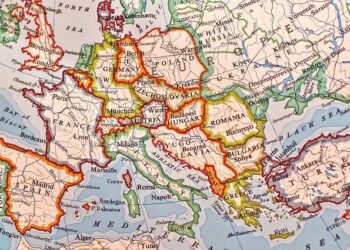The head of Poland’s leading Catholic news agency has resigned in a dramatic protest against what he describes as a “totalitarian” takeover by senior bishops. The unexpected departure highlights deepening tensions within the Polish Catholic Church, as concerns mount over increasing clerical control and diminishing editorial independence. This development sheds light on broader struggles over authority and freedom of expression within one of Europe’s most influential religious institutions.
Head of Poland’s Catholic News Agency Steps Down Citing Bishops’ Totalitarian Control
Jerzy GĂłrski, who recently resigned as the director of Poland’s leading Catholic news agency, has openly criticized the increasing influence of senior bishops over the organization’s editorial independence. In a scathing resignation letter, GĂłrski described the current leadership as exhibiting a “totalitarian approach“-a move he claims threatens the agency’s credibility and impartial reporting. His departure marks a rare and bold confrontation within Poland’s Catholic media landscape, where traditionally, ecclesiastical authority has maintained tight control over narratives.
Insiders reveal several underlying issues fueling the conflict, including:
- Editorial censorship: Restrictions on topics deemed “controversial” by the episcopate
- Leadership appointments: Bishops directly installing loyalists in key positions
- Suppression of dissent: Punitive measures against journalists challenging official church stances
| Issue | Impact |
|---|---|
| Editorial Censorship | Limited journalistic freedom |
| Appointments by Bishops | Reduced organizational autonomy |
| Dissent Suppression | Decline in critical reporting |
Analysts warn that the escalating interference could diminish public trust in Catholic media platforms just as Poland grapples with broader questions about church influence in civil society. Meanwhile, GĂłrski’s resignation serves as both a protest and a warning of the increasingly rigid control exercised by the episcopate-a dynamic that many fear may stifle transparency and honest debate within one of the country’s most influential institutions.
Internal Struggles Highlight Growing Tensions Within Poland’s Church Media Landscape
The abrupt resignation of the head of Poland’s leading Catholic news agency has sent shockwaves through the country’s religious media sphere. Critics argue this move exposes deep-seated conflicts about editorial independence and the increasing influence of the episcopate over Catholic journalism. The outgoing director cited what was described as a “totalitarian approach” by certain bishops who have sought to assert stricter control over content, undermining the agency’s traditionally autonomous voice. This controversy reveals a widening rift between church authorities aiming to consolidate messaging and journalists committed to objective, transparent reporting on ecclesiastical matters.
Key points fueling tensions include:
- Editorial interference: Allegations that bishops have been pressuring editors to align stories with official church narratives.
- Declining trust: A growing skepticism among Catholic audiences regarding the impartiality of church-affiliated media.
- Leadership shakeups: Recent appointments perceived as politically motivated rather than merit-based, raising questions about institutional autonomy.
| Bishopric Influence | Media Response | Impact Level |
|---|---|---|
| Increased content vetting | Protests within newsroom | High |
| Leadership replacements | Staff resignations | Medium |
| Restricting investigative reporting | Public criticism | High |
Experts Call for Transparent Governance to Protect Editorial Independence
Leading media experts have underscored the urgent need for clear and transparent governance structures within Poland’s religious news outlets following the recent resignation of the head of the Catholic news agency. They warn that unchecked influence by hierarchical bodies, such as the bishops, risks compromising the editorial autonomy that is vital for unbiased journalism. This intervention is seen as critical to safeguarding the ability of journalists to report freely, without fear of censorship or institutional pressure.
Authorities and stakeholders are being called upon to implement measures that ensure:
- Independent oversight of editorial policies
- Accountability mechanisms for governance decisions
- Protection of journalists’ rights to impartial reporting
| Key Advisory Points | Implications |
|---|---|
| Transparent Decision-Making | Builds trust among audiences and staff |
| Editorial Independence Guarantees | Prevents institutional interference |
| Regular Stakeholder Consultations | Ensures diverse viewpoints and fairness |
The Way Forward
The resignation of the head of Poland’s Catholic news agency marks a significant moment of dissent within the country’s religious media landscape. As tensions between the agency’s leadership and the bishops escalate over concerns of a “totalitarian” takeover, the episode highlights broader struggles over influence and autonomy within Poland’s Catholic Church. Observers will be closely watching how this development impacts both the agency’s future editorial direction and the Church’s standing in Polish society.
















